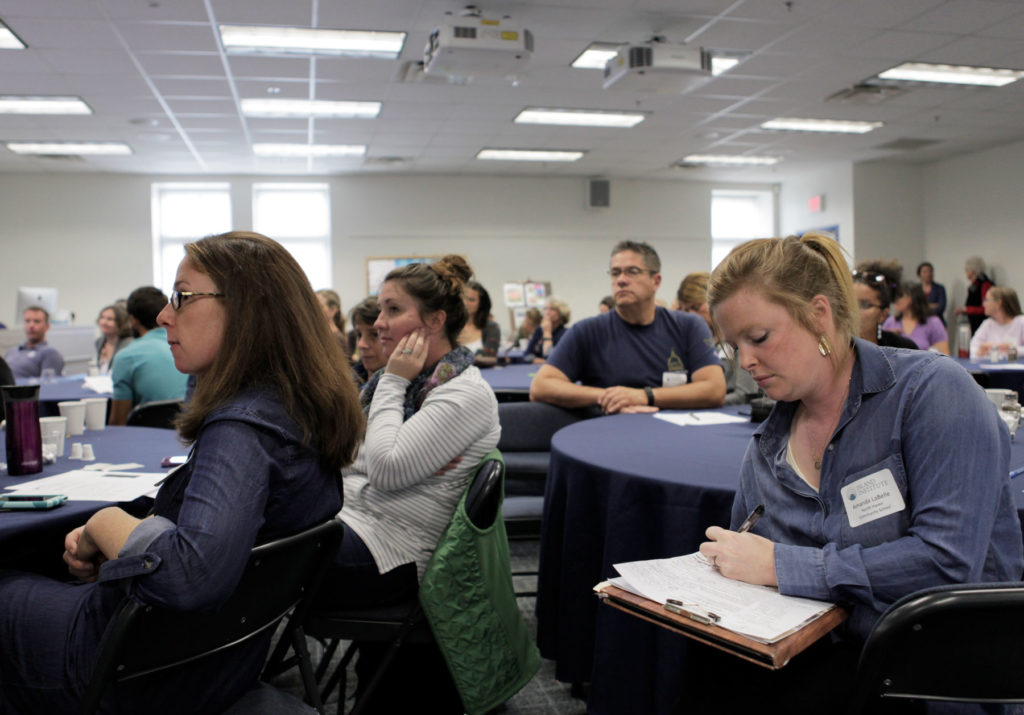Notes from the 2017 Island Teachers Conference
Island schools may be small, but the needs and interests of their students are big and varied. How then do island educators provide the wide range of support and rigor needed to ensure a student’s success? Personalized learning plans, trauma-informed classrooms, and integrated creative arts are just some of the innovative approaches that were featured at the recent 2017 Island Teachers Conference.
One example of personalized learning shared during the conference came from the Islesboro Central School’s Pathways team who talked about both the big picture and the nitty-gritty of their Pathways Program. Through this program, all high school students are given a voice in their education and guided through a process that results in a personalized learning plan based on their interests, passions, and goals. Teachers provide support and guidance, but it’s the students who decide how their high school education will unfold and what learning experiences it will include.

Jack Sullivan / Island Institute
Teachers from the Islesboro Central School’s Pathways team speak to ITC attendees
Another important subject highlighted was Adverse Childhood Experiences (ACEs), where Brittany Ray and Laura Thomas from the Transforming Rural Experience in Education (TREE) Program shared compelling data on the impact of traumatic experiences on the brain and how this affects student learning. Both teachers and administrators were moved by the information they learned about ACEs and are already seeking additional training on how to better understand and meet the needs of students impacted by childhood trauma.

Jack Sullivan / Island Institute
Brittany Ray from the TREE Program discusses how ACEs affect student learning
In addition to this year’s keynotes and informational sessions, the event also included some fun, hands-on workshops, where teachers learned and experienced some of the many ways that the creative arts can be incorporated into our island school programs. For example, one session focused on starting a ukulele ensemble as a music class solution for multi-age classrooms, one-room schools, tiny music budgets, and classes led by non-musicians.

Jack Sullivan / Island Institute
ITC guests take part in a little ukulele fun
Along with these highlights, the entire conference was filled with a wide range of workshops and offerings on place and project-based learning. One session included students from Edna Drinkwater School teaching participants how to play games they had created based on maps of the Gulf of Maine, while another focused on sharing information about a number of new island and coastal education programs.

Jack Sullivan / Island Institute
Edna Drinkwater teacher John Van Dis and students during their presentation, “Maps and Games in the Gulf of Maine”
Overall, it was about having the opportunity to connect with, be inspired by, and network with educators from other small, isolated, rural schools. For many teachers, this is the best part of the conference. As one teacher put it, “I really like getting new ideas to bring back to my classroom and hearing what other island teachers and schools are up to.”
See more photos from the 2017 Island Teachers Conference here


